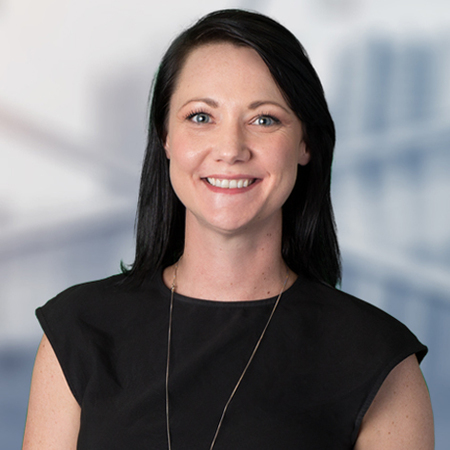Connecting...
CGC's Carmel Jones sat down (virtually of course) with Clive Wickham, Chief Operating Officer of Taylor to talk about a brighter future after COVID.
What have you learnt about leadership when facing the challenges presented by COVID-19?
One of the biggest challenges during the pandemic has been to separate fact from fiction, for our teams, in a rapidly changing environment.
For the safety aspects of site management, Taylor already has incredibly disciplined workplaces. It is supporting people’s individual work needs and keeping everyone up-to-date with the ever changing restrictions and government advice that has been critical.
It’s also been a learning curve, COVID-19 has changed many work practices – remote working or more flexible working arrangements for some. At the same time, we’ve had to look after our construction teams on site – they, generally, don’t have the ability to work remotely.
On site, additional cleaning and increased hygiene measures will be maintained into the future.
In some areas, I’m not sure we will go back to the way we were.

Where have you taken your direction / guidance from over the last few months?
In the first instance, we’ve closely followed all recommendations and legislative requirements of the NSW and Federal Governments.
The PCA Advocacy Alerts also provide regular, succinct summaries of government matters relating to Property and Construction. This has been very helpful.
With a great deal of commentary around COVID-19 changing daily, it’s been critical for us, as a business, to focus on formal, up-to-date government information.
How have you communicated your company strategy to your staff during this period?
At the start of lock down we undertook an all-staff, rapid migration to working together in Microsoft Teams. This has been incredibly successful, and a credit to our IT Team.
We’ve had a very disciplined strategy that includes;
- Regular updates from Mark Taylor, our Managing Director
- Sharing a detailed COVID-19 Safe Workplace Plan, and instructions, with all staff
- Providing all workers with access to electronic versions of Taylor Covid-19 policies, COVID-19 (coronavirus) Response Protocols, Social distancing guidelines at work, and health and wellbeing resources
- Displaying clear and concise Site Posters and Policy information, including physical-distancing decals
- Site and Office sign in, tracking apps
- Temperature testing for workers and visitors arriving to sites
- Continuing to support remote-working, where viable or needed for individual circumstances.
We continue to monitor the regulations and guidelines issued by federal, state and local governments and ensure that everyone understands preventative measures and abides by the policies and practices for social distancing, required to manage a COVID-19 safe workplace.
Our WHSE manager reviews and distributes any relevant position papers, updates or advice circulated by Government, SafeWork Australian, and MBA on dealing with the Covid-19 virus.
Although voluntary, we’ve also encouraged our staff to download the Government’s COVIDSafe App.
The COVIDSafe app speeds up the process of finding people who have been in close contact with someone with COVID-19 and reduces the chances of individuals passing on the virus to family, friends and other people in the workplace.
What is the outlook for the Australian Property industry?
We are currently seeing a rapid decline in confidence levels (PCA June QTR), however, the Australian Property and Construction industry will undoubtedly lead our economic recovery. Property is the nation’s biggest employer and contributes more than 13 per cent of GDP.
No doubt, we must be prepared for the COVID-19 pandemic to continue to have a worsening impact on businesses, investment, and construction schedules. And this will continue for some time. That’s why we must come together; government, policy-makers, industry and investors, to do all we can to keep the sector as healthy, active and alive as possible.
With thousands of jobs at risk, construction projects will create much needed jobs. With many of these jobs generated in areas of particular economic hardship.
Stimulus will be important in driving this job creation and economic recovery.
In 2 years’, time, what would be the biggest change you would like to see come out of this crisis?
We will see rapid innovation over the next two years.
Covid-19 has presented enormous challenges for construction companies, but the virus will also enhance site safety and staff wellbeing, whilst accelerating digital disruption and sector innovations like modular builds.
Modular building will gain momentum as a solution to enhance safety and reduce some human contact on worksites.
Taylor is currently working with partners to explore how virtual and augmented reality can enhance engineering, data collection and analysis, as well as timeframes and quality. Whilst experimental right now, we’ll see these applications take off over the next two years.
In what will no doubt be economically challenging and difficult times, positives will come out of this for the workplace; better hygiene, less superfluous meetings, flexible working, sign in phone apps, greater interconnectivity, and rapid innovation.












